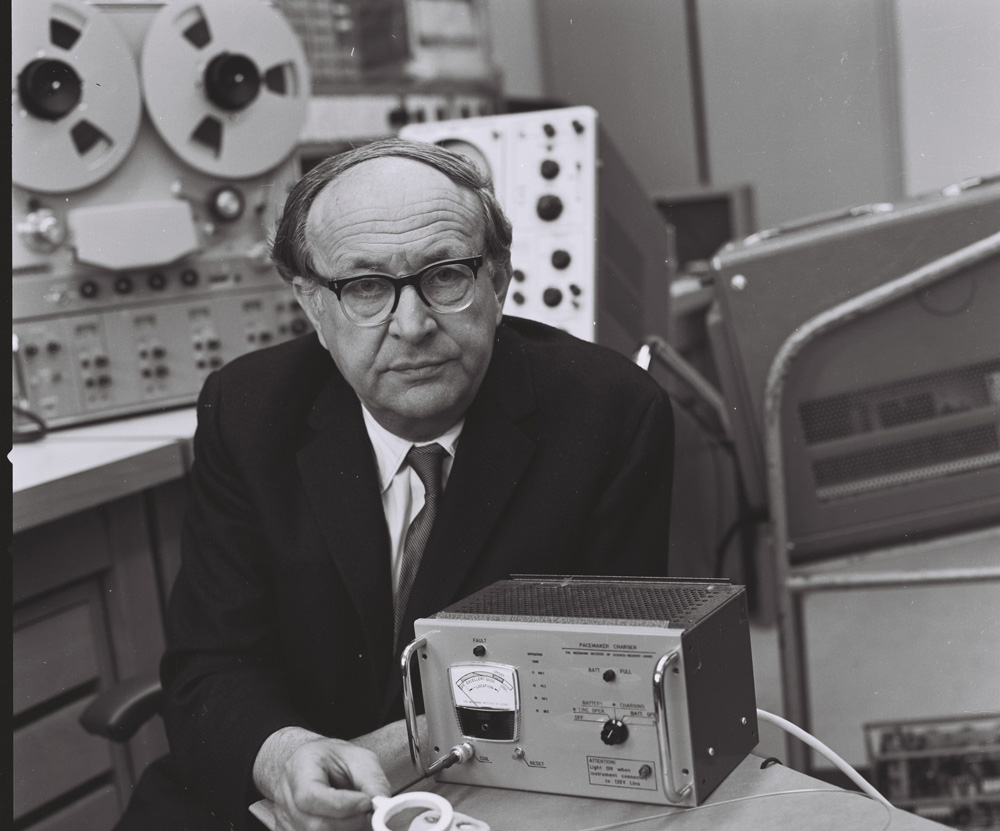
Professor Ephraim Frei, was a pioneer of electronics research in Israel and a founding member of the Weizmann Institute of Science's Electronics Department (precursor of the Department of Physics of Complex Systems) which he headed from 1961 to 1977.
Frei was born in Vienna, Austria, in 1912. He received his Ph.D. in Physics from the University of Vienna in 1936, immigrated to Palestine in 1938 and joined the Hebrew University of Jerusalem as a senior scholar. During World War II he served in the British Army and at the British embassy in Athens. While in Greece, as a member of the Haganah, he built clandestine radio stations that were used to communicate with boats smuggling refugees from Europe to Palestine. Between 1948 and 1950 he headed a group at Hemed (Hayl Mada-Science Forces) developing electronics for Israel’s pressing security needs. In 1950, he was sent to the Institute of Advanced Studies in Princeton, N.J. where he joined the history-making research team headed by John Von Neumann that pioneered the development of computers. In 1953, Frei joined the Weizmann Institute of Science where he spearheaded the efforts in electronics research.
Over the course of several decades, Frei figured prominently in the development of the medical uses of magnetism. He led seminal studies on the effects of electromagnetic fields on different materials, including living tissues and to distinguish between cancerous and healthy cells. Numerous practical applications resulted from Frei’s research. Among them are a miniature apparatus for recording brain impulses, a cardiac pacemaker with externally-charged batteries, a new type of flat loudspeaker, and a pencil-point-sized magnetic device that was guided to its target by magnetic fields for use in medical diagnosis, therapy and surgery.
Frei was awarded Tel Aviv’s Weizmann Prize and was one of the first Israelis to be elected a Fellow of the Institute of Electrical and Electronics Engineers (IEEE), “for contributions to magnetic transducers and ferromagnetism, medical electronics and education.” He was on the editorial board of several journals, served on numerous national and international committees, and chaired several major international scientific conferences on biomedical engineering and physics.
His long and variegated career was dominated by his idealism, his ambition to help his people and his country through his research in medical electronics and his work on projects that aided in the defense of the State of Israel. Despite his many achievements, Frei remained always unassuming, gentle and considerate. He was an esteemed mentor to many students and colleagues. He is survived by his daughter Leah, son Michael, 16 grandchildren and seven great grandchildren.
